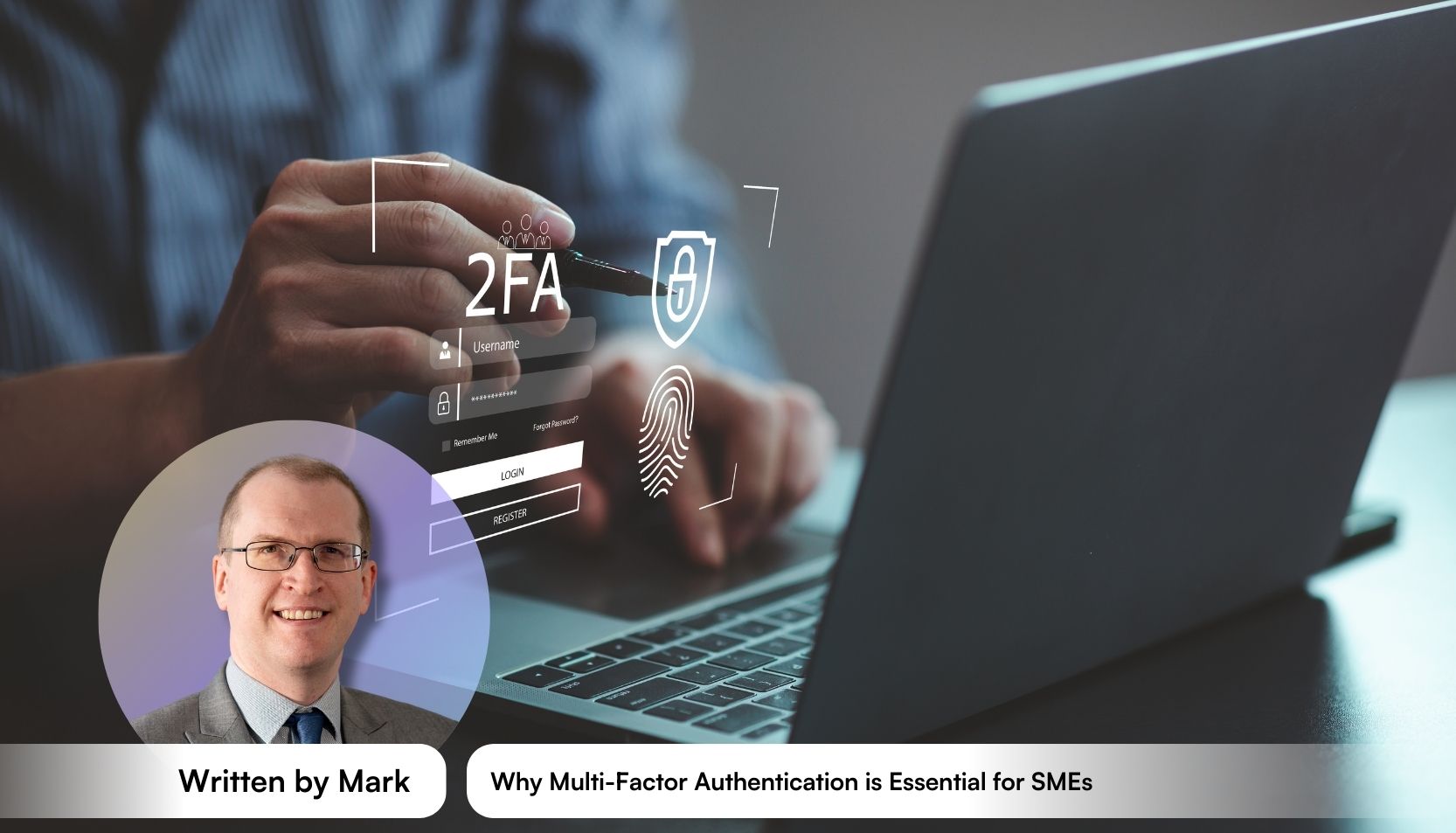

By Mark, SYTECH Cyber Security Services Manager
Small and medium-sized enterprises (SMEs) form the backbone of the UK’s private sector, accounting for an impressive 99.9% of the business population. With nearly 43 million employees and a turnover exceeding £2 trillion, SMEs have become critical to the country’s economic health. However, this prominence also makes them attractive targets for cyber threats, putting their operations, supply chains, and customer trust at risk.
While large corporations often have dedicated cybersecurity teams and sophisticated defenses, smaller businesses can lack the resources or expertise to maintain strong security protocols. This gap becomes particularly concerning as more companies digitise their operations. Today, a majority of SMEs rely on online accounts, cloud-based tools, and digital supply chains to function efficiently. Unfortunately, this reliance also increases their vulnerability to attacks, especially when security measures rely solely on traditional authentication methods such as usernames and passwords.
The stakes are high. According to the UK government’s most recent cybersecurity report, the cost of cyber incidents for micro, small, and medium enterprises has been steadily increasing. These businesses are not only facing financial losses from disrupted operations or stolen data but also experiencing reputational damage that can take years to recover from. As the digital economy continues to grow, SMEs must prioritise robust security strategies to maintain their competitiveness and stability.
For years, the standard approach to securing online accounts was based authentication: requiring a user to supply a username and password. While this method is straightforward, it is no longer sufficient to protect sensitive information. Cybercriminals have grown adept at stealing or cracking passwords through phishing schemes, data breaches, and sophisticated hacking techniques.
Compounding the issue, employees often reuse passwords across multiple accounts or choose weak passwords that are easily guessed. For SMEs, the fallout from a compromised account can be severe, disrupted operations, loss of customer data, financial penalties, and a damaged reputation. In a supply chain context, a single compromised SME can become a weak link, allowing attackers to infiltrate larger partner organisations. As a result, finding a stronger authentication method has become a necessity, not a luxury.
Enter multi-factor authentication (MFA), an essential solution for businesses of all sizes, but especially for SMEs. MFA adds an extra layer of security by requiring multiple forms of verification before granting access. Instead of relying solely on something the user knows (like a password), MFA incorporates additional factors such as something the user has (a smartphone or hardware token) or something they are (biometric data like fingerprints or facial recognition).
By implementing MFA, SMEs can significantly reduce their exposure to threats. Even if a hacker gains access to an employee’s password, they still need the second form of authentication to breach the account. This “defense in depth” approach provides a robust barrier against unauthorised access and helps ensure that sensitive business data remains protected.
With MFA, SMEs can shield their online accounts from the most common cyberattacks. Time passwords (OTP), SMS codes, or authenticator apps ensure that even if a password is compromised, attackers cannot easily gain entry. This is particularly valuable for businesses handling large amounts of customer data or financial information, where breaches can lead to significant regulatory fines and reputational damage.
A breach at one small business can ripple through an entire supply chain. By strengthening authentication methods, SMEs can reassure partners and customers that their data is secure, fostering trust and long-term business relationships. This is especially critical for businesses with 250 employees or a balance sheet total that ties into larger networks.
While MFA solutions were once considered complex and costly, advancements in technology have made them more affordable and accessible. SMEs can now integrate MFA into their existing workflows without significant expense or disruption, reducing the likelihood of costly breaches or regulatory fines. Many solutions are scalable, allowing SMEs to adopt basic MFA measures initially and expand as their needs grow.
Many industry regulations and standards now emphasise the importance of robust authentication measures. By adopting MFA, SMEs can more easily align with these guidelines, avoiding penalties and demonstrating their commitment to data protection. For instance, certain sectors with sensitive customer data, such as financial services, are increasingly requiring MFA to maintain compliance and protect sensitive online accounts.
Human error remains a leading cause of data breaches. Employees who fall for phishing emails or use weak passwords often unknowingly open the door to attackers. By implementing MFA, SMEs introduce an additional verification step that can prevent unauthorised access, even if an employee’s password is compromised. This not only enhances security but also helps foster a culture of security awareness within the organisation.
Implementing MFA doesn’t have to be overwhelming. Many cloud-based services already support MFA, allowing businesses to activate it with minimal technical knowledge. SMEs can start by enabling MFA for critical accounts, such as email, finance, and HR systems. From there, they can extend it to other platforms and educate employees on the importance of using time passwords and other second-factor methods.
It’s also wise to consider a scalable solution that grows with the business. As SMEs expand and hire more employees, their security needs evolve. A flexible MFA strategy can accommodate this growth, ensuring that strong security remains a priority.
In addition to adopting MFA, SMEs should take the opportunity to review their broader cybersecurity policies. Regular staff training on recognising phishing attempts, setting strong passwords, and maintaining proper device hygiene can bolster the overall effectiveness of their security measures. Combining these efforts with MFA can make it significantly more difficult for attackers to penetrate even the smallest of businesses.
With nearly 50 million online accounts and a balance sheet total that plays a crucial role in the economy, SMEs cannot afford to ignore cybersecurity. Multi-factor authentication offers a practical, proven way to safeguard sensitive data, protect supply chains, and maintain trust with customers and partners. By moving beyond the vulnerabilities of username and password-based authentication, SMEs can fortify their defenses and focus on thriving in the digital age.